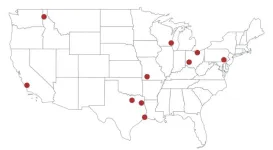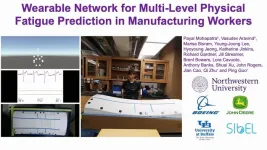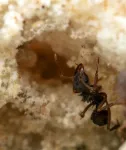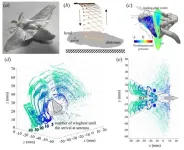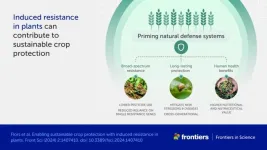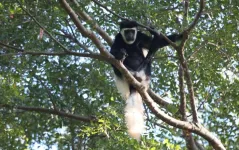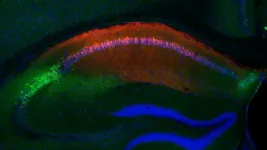(Press-News.org) A pre-registered survey of nearly 10,000 Americans shows that delays in declaring the winners of elections cause distrust in the electoral process, but that reassuring voters before polls close that delays are normal can prevent this distrust from taking root. National elections in the United States were not definitively settled for days after election day in 2020 and 2022. There are legitimate reasons for such delays, including state rules about when counting can commence and laws about whether mailed ballots postmarked on election day must be counted. However, delayed results have been linked to suspicion about the fairness of elections. Mackenzie Lockhart and colleagues surveyed Americans sourced from Cint, an online survey platform. Some participants saw a 40-second “prebunking" video produced by the Arizona Secretary of State that explained that counting ballots accurately can take time. Others saw no video. Participants were then told about the winner of the 2022 Governor’s race in Arizona. Some participants were also told that the results took six days; others received no information about election timing. Next, all participants were asked “How much do you trust election results in the state of Arizona?” Those who were told about the delay but did not see the prebunking video were 6.5 percentage points less trusting than those who were not told about the delay and did not see the video. Those who were told about the delay and did see the prebunking video were just 2.6 percentage points less trusting than those who were not told about the delay and did not see the video. According to the authors, simple, inexpensively produced messages from election officials can help prevent voter distrust when election results take extra time.
END
Election delays and voter trust
2024-10-15
ELSE PRESS RELEASES FROM THIS DATE:
US air pollution monitoring network has gaps in coverage, say researchers
2024-10-15
The lack of air-quality monitoring capabilities across the U.S. affects the health of millions of people and disproportionately impacts minority and low socioeconomic-status communities, say researchers in ACS’ Environmental Science & Technology Letters. Motivated by a new U.S. Environmental Protection Agency (EPA) standard for air pollution, the team employed a model for fine-scale air pollution mapping using real-world data, and it indicates there is an urgent need to address gaps in the agency’s monitoring ...
Continuous monitoring of fatigue in factory workers
2024-10-15
A system of wearable sensors and machine learning can continuously monitor factory workers for signs of physical fatigue. Factory work can be physically strenuous, and a safe and ethical workplace must ensure that workers do not become overly fatigued, which can increase the risk of injury and accident, cause chronic health problems, and also impair performance. A system designed by Ping Guo, Qi Zhu, and colleagues measures heart rate, heart rate variability, skin temperature, and locomotor patterns ...
Farmer ants’ wearable bacteria
2024-10-15
A study investigates the evolution of beneficial bacteria that live inside and on the surface of farming ants. Attine ants farm fungi, in one of the natural world’s best-studied mutualistic symbioses. In the 1990s, the picture of this mutualism was expanded to include another partner: an actinobacteria, Pseudonocardia, which lives on the ants’ cuticle—their hard exoskeleton—where its cultures are fed by secretions of subcuticular glands. Pseudonocardia is known to kill the fungal pathogen Escovopsis, that might destroy the ants’ mutualistic fungus. Jacobus J. Boomsma and colleagues sequenced samples ...
Political polarization and trust
2024-10-15
A collection of 15 articles from the Polarization and Trust Special Feature explores the complex nature of the emotional divide between political opponents, using approaches from a variety of disciplines, including political science, psychology, sociology, and economics. The articles emerged from a 2023 workshop on “Directions of Polarization, Social Norms, and Trust in Societies,” held at MIT and organized by Kati Kish Bar-On, Eugen Dimant, Yphtach Lelkes and David Rand. Researchers from a number of teams identified ways in which partisans mistrust and inaccurately perceive their political opponents, and other teams examined why such inaccurate ...
Study uncovers how silkworm moth's odor detection may improve robotics
2024-10-15
The silkworm moth (Bombyx mori) is an insect that no longer flies due to domestication. The males use their antennae to detect pheromones emitted by females and respond very acutely, and have been used as model insects for the study of their odor source localization. Flying insects flap their wings when they fly, and silkworm moths are also known to flap their wings (called fanning) when they detect pheromones, even though they do not fly. As pheromone molecules move through space in the air, the air flows ...
New study links obesity to elevated hypertension risk among young middle eastern women
2024-10-15
Obesity is a widespread public health challenge in the Middle East, maintaining prevalence in 54.2% of women and 31.4% of men in this region. Overweight and obese women have a higher risk of hypertension and cardiovascular risk factors than women with a standard BMI, according to an analysis of the ANCORS-YW STUDY presented at ACC Middle East 2024. The findings highlight the urgent need for targeted interventions that address socioeconomic determinants of health to reduce the cardiovascular risk ...
How ‘vaccinating’ plants could reduce pesticide use and secure global food supplies
2024-10-15
In a growing and changing world, we need to find ways of putting food on everyone’s table. Pesticides have enabled mass cultivation on an incredible scale, but they can have harmful secondary effects on humans and wildlife, and pests are rapidly evolving to overcome them. To overcome this challenge and develop the sustainable and resilient agriculture of the future, scientists writing in Frontiers in Science explore the potential of induced resistance. Like a vaccination for plants, it deliberately triggers a plant’s immune system, so that when the plant encounters a similar ...
Seven new frog species discovered in Madagascar: sounds like something from Star Trek
2024-10-15
Seven New Frog Species Discovered in Madagascar: Sounds Like Something from Star Trek
An international team of researchers have discovered seven new species of tree frogs that make otherworldly calls in the rainforests of Madagascar. Their strange, high-pitched whistling calls sound more like sound effects from the sci-fi series Star Trek. As a result, the researchers have named the new species after seven of the series' most iconic
If you think all frogs croak, you’d be wrong. Seven newly discovered species from the tree frog genus Boophis, found across the rainforests of Madagascar, emit special bird-like whistling ...
New temperatures in two thirds of key tropical forest
2024-10-15
Two thirds of Key Biodiversity Areas (KBAs) in tropical forests are experiencing new temperature conditions as our climate changes, research shows.
KBAs identify the most important places on Earth for species and their habitats.
The new study – by Exeter, Manchester Metropolitan and Cambridge universities – assessed 30 years of temperature conditions below the forest canopy in KBAs in tropical forests worldwide.
It found that 66% of KBAs in tropical forests have recently transitioned to new “temperature regimes” (more than 40% of temperature measurements being outside the range previously recorded ...
Fearful memories of others seen in mouse brain
2024-10-15
NEW YORK, NY — How do we distinguish threat from safety? It’s a question important not just in our daily lives, but for human disorders linked with fear of others, such as social anxiety or post-traumatic stress disorder (PTSD). The microscope image accompanying this press release, from the laboratory of Steven A. Siegelbaum, PhD, at Columbia’s Zuckerman Institute, displays a powerful technique scientists used to help us find an answer.
The scientists were investigating the hippocampus, a brain area that plays a key role in memory in humans and mice. Specifically, they focused on the CA2 region, which is ...
